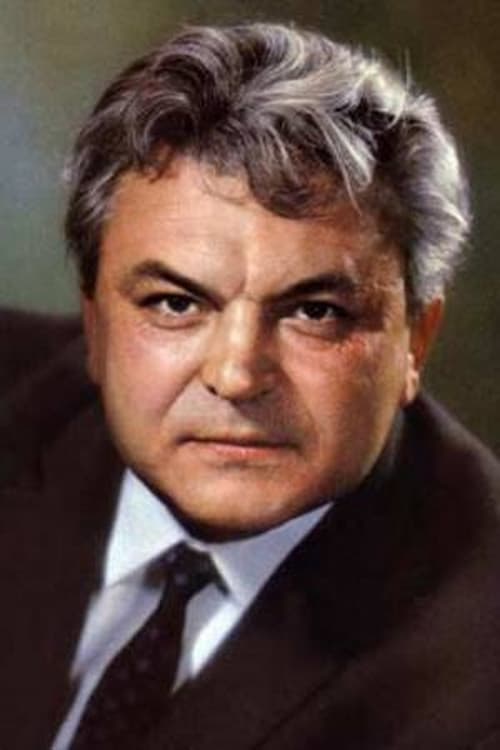
self (archive)
The new film about Sergei Bondarchuk is not a traditional description of the life of a famous director and not a biopic timed to coincide with a round date. The creators of the film focus on a unique period in the history of world cinema - the post-war "thaw" euphoria and the time of great hopes, the key character of which was the author of "War and Peace". What was this man and cinematographer who shot both chamber dramas and megalomaniac battle projects? And how did he, the winner of many USSR awards, manage to become a figure of world significance and a link between the two superpowers during the Cold War era?
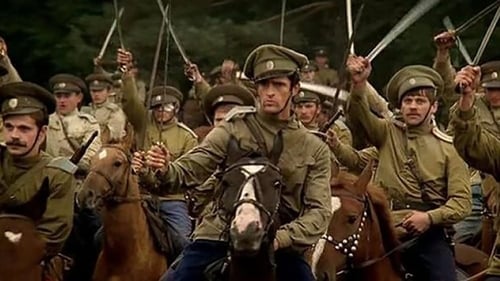
General Krasnov
With World War I, the Bolshevik Revolution, and the Russian Civil War as backdrop, it's an old-fashioned, blood-and-guts narrative, filled with earthly humor and a wealth of colorful characters. The story concerns the fluctuating fortunes of Grigory Melekhov, a young Cossack who is both a hero and a victim of the uprising.

Screenplay
With World War I, the Bolshevik Revolution, and the Russian Civil War as backdrop, it's an old-fashioned, blood-and-guts narrative, filled with earthly humor and a wealth of colorful characters. The story concerns the fluctuating fortunes of Grigory Melekhov, a young Cossack who is both a hero and a victim of the uprising.

Director
With World War I, the Bolshevik Revolution, and the Russian Civil War as backdrop, it's an old-fashioned, blood-and-guts narrative, filled with earthly humor and a wealth of colorful characters. The story concerns the fluctuating fortunes of Grigory Melekhov, a young Cossack who is both a hero and a victim of the uprising.

Two-part adaptation of A. K. Tolstoy's novel "Prince Serebriany a tale of unrest and intrigue under the rule of Ivan the Terrible.

Selim

Boris Godunov
Praised for its fine photography and production design if not its narrative, Sergei Bondarchuk directed this adaptation of the tale by Alexander Pushkin. Boris Godunov came to the Czarist throne at the end of the 16th century, after the original heir to Ivan the Terrible had died. At first, things went well for Godunov (played by Bondarchuk), but when the Russian people began to believe he had killed Ivan the Terrible's son in order to gain the throne, an alliance sprang up against the new Czar. Events continued to spin out of control as a young monk was presented as the son Godunov had supposedly killed. Now he was openly accused of failing an assassination attempt, which seems to be even worse than succeeding. In addition to these woes, Boris Godunov began to suffer serious health problems. So much for the joys of kingship.

Writer
Praised for its fine photography and production design if not its narrative, Sergei Bondarchuk directed this adaptation of the tale by Alexander Pushkin. Boris Godunov came to the Czarist throne at the end of the 16th century, after the original heir to Ivan the Terrible had died. At first, things went well for Godunov (played by Bondarchuk), but when the Russian people began to believe he had killed Ivan the Terrible's son in order to gain the throne, an alliance sprang up against the new Czar. Events continued to spin out of control as a young monk was presented as the son Godunov had supposedly killed. Now he was openly accused of failing an assassination attempt, which seems to be even worse than succeeding. In addition to these woes, Boris Godunov began to suffer serious health problems. So much for the joys of kingship.

Director
Praised for its fine photography and production design if not its narrative, Sergei Bondarchuk directed this adaptation of the tale by Alexander Pushkin. Boris Godunov came to the Czarist throne at the end of the 16th century, after the original heir to Ivan the Terrible had died. At first, things went well for Godunov (played by Bondarchuk), but when the Russian people began to believe he had killed Ivan the Terrible's son in order to gain the throne, an alliance sprang up against the new Czar. Events continued to spin out of control as a young monk was presented as the son Godunov had supposedly killed. Now he was openly accused of failing an assassination attempt, which seems to be even worse than succeeding. In addition to these woes, Boris Godunov began to suffer serious health problems. So much for the joys of kingship.

A short documentary on the director, presumably made for Russian TV, that mixes interview with footage of the director at home and at work, extracts from the film and archive footage from screenings.

Writer
The second part of Soviet filmmaker Sergei Bondarchuk's epic biography of John Reed. It is October 1917 and the American journalist has found himself and his wife, Louise Bryant, in Petrograd on the eve of the Bolshevik revolution.

Director
The second part of Soviet filmmaker Sergei Bondarchuk's epic biography of John Reed. It is October 1917 and the American journalist has found himself and his wife, Louise Bryant, in Petrograd on the eve of the Bolshevik revolution.

Writer
A chronicle of the Russian and Mexican revolutions in the early 20th century.

Director
A chronicle of the Russian and Mexican revolutions in the early 20th century.

Кардинал Монтанелли
The movie set in 1840s Italy under the dominance of Austria, a time of tumultuous revolt and uprisings. The story centers on the life of the protagonist, Arthur Burton, as a member of the Youth movement, and his antagonist, Padre Montanelli. A thread of a tragic relationship between Arthur and his love Gemma simultaneously runs through the story. It is a story of faith, disillusionment, revolution, romance, and heroism.

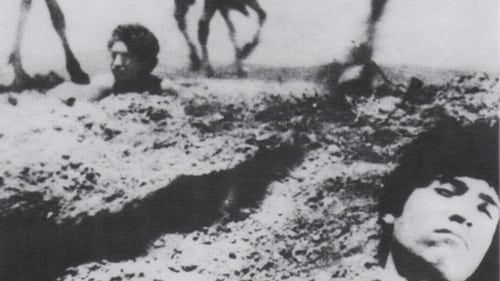
Narrator
¡Que viva México! was a film project undertaken in 1931-32 by Soviet film-maker Sergei Eisenstein for American socialist author Upton Sinclair and several investors, which Eisenstein eventually conceived as an episodic portrayal of Mexican culture and politics from pre-Conquest civilization to the Mexican revolution. Over 200,000 feet of silent film were shot before production had to be stopped due to exhaustion of finances and Stalin's demands that Eisenstein return to the USSR. This is one of several attempts to make a feature film out of the existing footage, here according to Eisenstein's skeletal outline and under the supervision of Gregori Alexandrov, Eisenstein's long-time collaborator, including on this project.
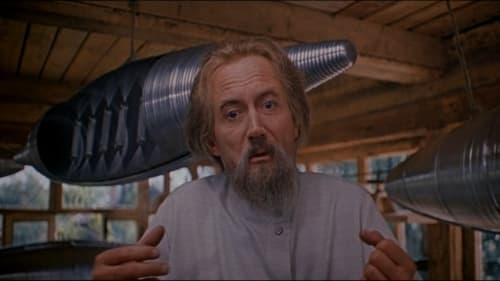
Narrator (voice)
A biographical film about the life of the great Russian scientist, inventor of rocket technology and the founder of theoretical astronautics — Konstantin Tsiolkovsky, the hard spiritual work of the thinker, overcoming the stagnation of the surrounding and dramatic events of his family life.

Richard Bradbury
In the fall of 1938, three former fighters of the international brigade — russian Shukhov, frenchman Henri and american Liz — fall into a resort town on the border of Spain and France. Having met a nurse who is supposed to send Spanish children to Corsica, they decide to help her. However, a fascist rebellion suddenly breaks out in the city, and the children are held hostage to criminals.

Stepan Kasatsky / Father Sergius
A film adaptation of the novel of the same name by Leo Tolstoy.
The main character of the film is Prince Stepan Kasatsky, an officer, an ardent, proud young man — a big fan of the tsar. Kasatsky is going to marry, but at the last moment he learns from the bride that she was the mistress of the emperor. The prince is deeply disappointed in social life, he takes a monastic vow and leaves the capital. Faith in God was to save the soul, but passions and worldly temptations don't leave Kasatsky.

A boy in Russia, circa 1900, makes a daunting trip from his home village to a school in the city.

Screenplay
A boy in Russia, circa 1900, makes a daunting trip from his home village to a school in the city.

Director
A boy in Russia, circa 1900, makes a daunting trip from his home village to a school in the city.
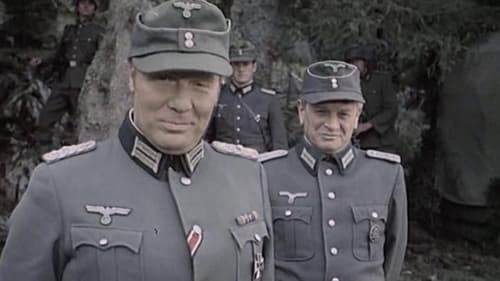
Profesor
During the Battle of Sutjeska, partisan troops must endure 24 hours of big and heavy attacks on German units Ljubino grave, to the main Partisan units, with the wounded and the Supreme Headquarters, pulled out the ring that is tightened around them.

Writer
In July 1942, in the Second World War, the rearguard of the Russian army protects the bridgehead of the Don River against the German army while the retreating Russian troops cross the bridge. While they move back to the Russian territory through the countryside, the soldiers show their companionship, sentiments, fears and heroism to defend their motherland.

Director
In July 1942, in the Second World War, the rearguard of the Russian army protects the bridgehead of the Don River against the German army while the retreating Russian troops cross the bridge. While they move back to the Russian territory through the countryside, the soldiers show their companionship, sentiments, fears and heroism to defend their motherland.

pvt. Ivan Zvyagintsev
In July 1942, in the Second World War, the rearguard of the Russian army protects the bridgehead of the Don River against the German army while the retreating Russian troops cross the bridge. While they move back to the Russian territory through the countryside, the soldiers show their companionship, sentiments, fears and heroism to defend their motherland.

Kurchatov
A story of the creation of the atomic bomb in America, Germany and the USSR.
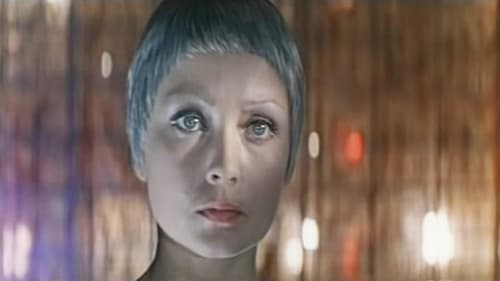
Martin Evans
In the surreal aftermath to a plane crash at sea Dr. Iven an eminent scientist is the only survivor to be taken into the confidence of the alien rescuers. He learns that the world with its weapons of mass destruction is not ready for the wonders of the culture of the pacifist visitors. The situation is further complicated by the close relationship that blossoms between the doctor and the female alien, and due to this relationship he is the only survivor allowed to retain his memory of the events, unlike the other survivors including his wife, whose memories are erased.
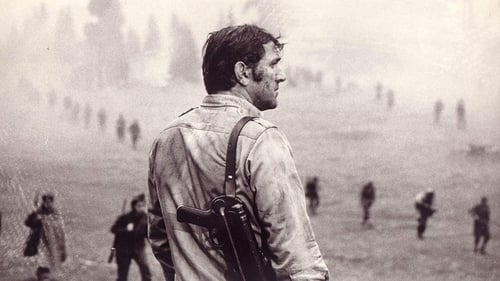
Writer
The headquarters of the Marshal Tito's Liberation Army are surrounded by Axis forces. The Partisans have no choice but to fight their way out of the encirclement and face the enemy on the plains of Sutjeska.

Narrator (Voice)
The film-remembrance of the creative fate of the Ukrainian Soviet film director Alexander Dovzhenko, shot on his diaries.
It has his statements about his work, about the role of the artist in society, his plans and sources of inspiration, his artistic style and the peculiarities of his worldview.
Used excerpts from his films and documentary footage taken during the director's life, as well as filmed fragments of the unfinished scripts " The Death of the Gods” and “Tsar”.
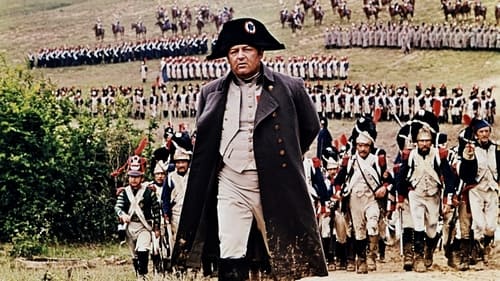
Scenario Writer
After defeating France and imprisoning Napoleon on Elba, ending two decades of war, Europe is shocked to find Napoleon has escaped and has caused the French Army to defect from the King back to him. The best of the British generals, the Duke of Wellington, beat Napolean's best generals in Spain and Portugal, but now must beat Napoleon himself with an Anglo Allied army.

Director
After defeating France and imprisoning Napoleon on Elba, ending two decades of war, Europe is shocked to find Napoleon has escaped and has caused the French Army to defect from the King back to him. The best of the British generals, the Duke of Wellington, beat Napolean's best generals in Spain and Portugal, but now must beat Napoleon himself with an Anglo Allied army.
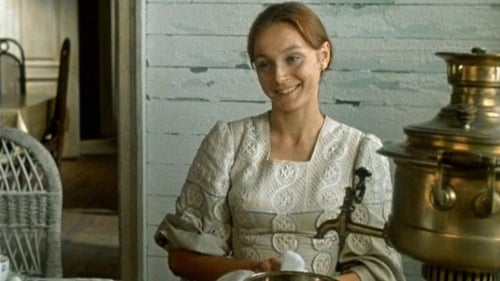
Dr. Mikhail Lvovich Astrov
Serebryakov, a retired professor and his beautiful, much younger second wife, Yeléna, visit their country estate, which funds their urban lifestyle. Vanya, brother of the Professor's first wife, who manages the farm estate, and the local Doctor Astrov, both fall under Yelena's spell, while complaining of the endless ennui of their provincial existence. Astrov is an experienced physician who performs his job conscientiously, but has lost all idealism and spends much of his time drinking. Sofya, the Professor's daughter by his first wife, who works to keep the estate going with her uncle Vanya, meanwhile suffers from lack of esteem over what she sees as her own lack of beauty, and from an unrequited love for Dr. Astrov. Matters are brought to a head when the Professor announces his intention to sell the estate, Vanya and Sofya's home, to achieve a higher income for himself and his wife.
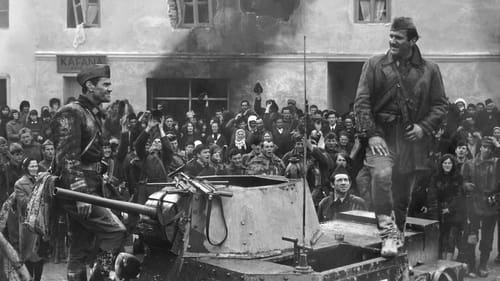
Martin
In January 1943 the German army, afraid of an Allied invasion of the Balkans, launched a great offensive against Yugoslav Partisans in Western Bosnia. The only way out for Partisan forces and thousands of refugees was the bridge on the river Neretva.
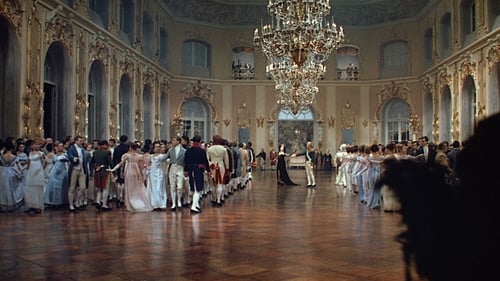
Pierre Bezukhov
As Moscow is set ablaze by the retreating Russians, the Rostovs flee their estate, taking wounded soldiers with them, and unbeknownst to them, also Andrei. Pierre, dressed as a peasant, tries to assassinate Napoleon but is taken prisoner. As the French are forced to retreat, he is marched for months with the Grande Armée, until being freed by a raiding party. The French are defeated by Kutuzov in the Battle of Krasnoi. Andrei is recognized and is brought to his estate. He forgives Natasha on his deathbed. She reunites with Pierre and they marry as Moscow is being rebuilt.

Screenplay
As Moscow is set ablaze by the retreating Russians, the Rostovs flee their estate, taking wounded soldiers with them, and unbeknownst to them, also Andrei. Pierre, dressed as a peasant, tries to assassinate Napoleon but is taken prisoner. As the French are forced to retreat, he is marched for months with the Grande Armée, until being freed by a raiding party. The French are defeated by Kutuzov in the Battle of Krasnoi. Andrei is recognized and is brought to his estate. He forgives Natasha on his deathbed. She reunites with Pierre and they marry as Moscow is being rebuilt.

Director
As Moscow is set ablaze by the retreating Russians, the Rostovs flee their estate, taking wounded soldiers with them, and unbeknownst to them, also Andrei. Pierre, dressed as a peasant, tries to assassinate Napoleon but is taken prisoner. As the French are forced to retreat, he is marched for months with the Grande Armée, until being freed by a raiding party. The French are defeated by Kutuzov in the Battle of Krasnoi. Andrei is recognized and is brought to his estate. He forgives Natasha on his deathbed. She reunites with Pierre and they marry as Moscow is being rebuilt.
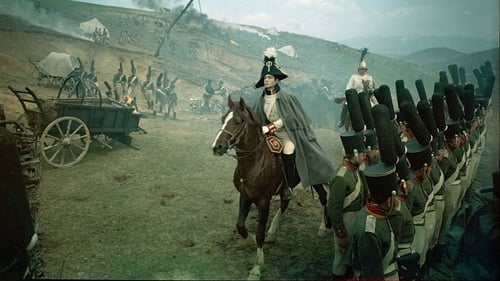
Screenplay
In 1812, Napoleon's Army invades Russia. Kutuzov asks Bolkonsky to join him as a staff officer, yet the prince requests a command in the field. Pierre sets out to watch the upcoming confrontation between the armies. During the Battle of Borodino, he volunteers to assist in an artillery battery. Bolkonsky's unit waits in the reserve, but he is hit by a shell. Both Anatol and Bolkosnky suffer severe wounds. The French Army is victorious and advances on Moscow.

Pierre Bezukhov
In 1812, Napoleon's Army invades Russia. Kutuzov asks Bolkonsky to join him as a staff officer, yet the prince requests a command in the field. Pierre sets out to watch the upcoming confrontation between the armies. During the Battle of Borodino, he volunteers to assist in an artillery battery. Bolkonsky's unit waits in the reserve, but he is hit by a shell. Both Anatol and Bolkosnky suffer severe wounds. The French Army is victorious and advances on Moscow.

Director
In 1812, Napoleon's Army invades Russia. Kutuzov asks Bolkonsky to join him as a staff officer, yet the prince requests a command in the field. Pierre sets out to watch the upcoming confrontation between the armies. During the Battle of Borodino, he volunteers to assist in an artillery battery. Bolkonsky's unit waits in the reserve, but he is hit by a shell. Both Anatol and Bolkosnky suffer severe wounds. The French Army is victorious and advances on Moscow.

Pierre Bezukhov
In the end of 1809, Natasha attends her first ball. Andrei falls in love with her and intends to marry her, but her father demands they wait. The prince travels abroad, and Natasha desperately longs for him. But she then meets Anatol Kuragin and forgets of Andrei. At the last minute, she regrets and abandons her plans to elope with Anatol. Bolkonsky hears of this and declares their betrothal is over. Pierre, trying to calm her down, suddenly announces he loves her.

Screenplay
In the end of 1809, Natasha attends her first ball. Andrei falls in love with her and intends to marry her, but her father demands they wait. The prince travels abroad, and Natasha desperately longs for him. But she then meets Anatol Kuragin and forgets of Andrei. At the last minute, she regrets and abandons her plans to elope with Anatol. Bolkonsky hears of this and declares their betrothal is over. Pierre, trying to calm her down, suddenly announces he loves her.

Director
In the end of 1809, Natasha attends her first ball. Andrei falls in love with her and intends to marry her, but her father demands they wait. The prince travels abroad, and Natasha desperately longs for him. But she then meets Anatol Kuragin and forgets of Andrei. At the last minute, she regrets and abandons her plans to elope with Anatol. Bolkonsky hears of this and declares their betrothal is over. Pierre, trying to calm her down, suddenly announces he loves her.

Interviewee
A documentary detailing the production of Sergei Bondarchuk's film WAR AND PEACE and features an interview with the director.
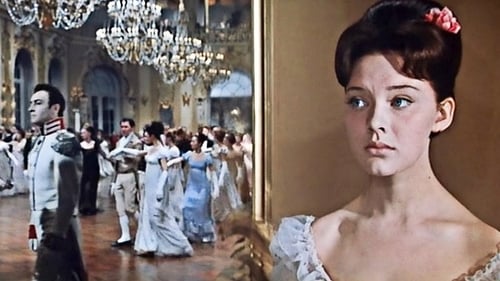
Director
A seven-hour epic adaptation of the novel by Leo Tolstoy. The love story of young Countess Natasha Rostova and Count Pierre Bezukhov is interwoven with the Great Patriotic War of 1812 against Napoleon's invading army.

Screenplay
A seven-hour epic adaptation of the novel by Leo Tolstoy. The love story of young Countess Natasha Rostova and Count Pierre Bezukhov is interwoven with the Great Patriotic War of 1812 against Napoleon's invading army.

Screenplay
The first film of a four-part adaptation of Leo Tolstoy’s 1869 novel. In St. Petersburg of 1805, Pierre Bezukhov, the illegitimate son of a rich nobleman, is introduced to high society. His friend, Prince Andrei Bolkonsky, joins the Imperial Russian Army as aide-de-camp of General Mikhail Kutuzov in the War of the Third Coalition against Napoleon.

Pierre Bezukhov
The first film of a four-part adaptation of Leo Tolstoy’s 1869 novel. In St. Petersburg of 1805, Pierre Bezukhov, the illegitimate son of a rich nobleman, is introduced to high society. His friend, Prince Andrei Bolkonsky, joins the Imperial Russian Army as aide-de-camp of General Mikhail Kutuzov in the War of the Third Coalition against Napoleon.

Director
The first film of a four-part adaptation of Leo Tolstoy’s 1869 novel. In St. Petersburg of 1805, Pierre Bezukhov, the illegitimate son of a rich nobleman, is introduced to high society. His friend, Prince Andrei Bolkonsky, joins the Imperial Russian Army as aide-de-camp of General Mikhail Kutuzov in the War of the Third Coalition against Napoleon.

Pierre Bezukhov
A seven-hour epic adaptation of the novel by Leo Tolstoy. The love story of young Countess Natasha Rostova and Count Pierre Bezukhov is interwoven with the Great Patriotic War of 1812 against Napoleon's invading army.
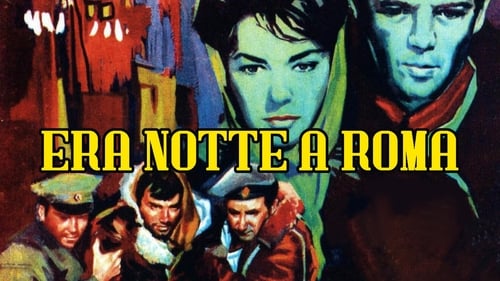
Fyodor Nazukov
In Nazi-occupied Rome, a beautiful bootlegger, to the chagrin of her lover, gives sanctuary to three escaped POWs: an American pilot, a Russian sergeant and a British major.

Based on the Vera Panova book about a complicated relationship between an 8-year-old boy and his new stepfather.
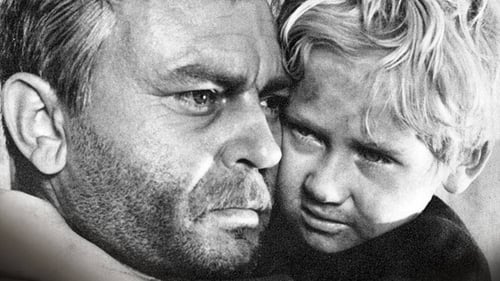
Andrei Sokolov
The story of a man (Andrey Sokolov) whose life was ruthlessly crippled by World War II. His wife and daughters were killed during the bombing of his village, he spent some time as a prisoner, and his only son was killed in action only a few days before the victory...

Director
The story of a man (Andrey Sokolov) whose life was ruthlessly crippled by World War II. His wife and daughters were killed during the bombing of his village, he spent some time as a prisoner, and his only son was killed in action only a few days before the victory...

Matvey Krylov - soldat

Ivan Franko
Historical and biographical film about the life and work of Ukrainian writer Ivan Franko.

Othello
Soviet film of the Shakespeare play.

Yuri Yershov
The local doctor Yelizaveta Maksimovna is a beautiful woman and a wonderful sympathetic person. She is lonely, although she is cared for by a confident and promising colleague. Yelizaveta Maksimovna has one patient, a manly, full-energy ship builder Yershov, chained to the bed with a paralysis of both legs. All doctors recommend him rest, and Elizaveta Maksimovna advises to work and not feel sorry for herself. Yershov with all his heart falls in love with his doctor, and she loves him, but she does not dare to say her feelings. Ershov thinks that he has no hopes, but...

Dr. Osip Dymov
Osip Dymov, the titular counselor and the doctor of thirty one years, serves in two hospitals at the same time: intern and anatomist. From nine o'clock in the morning and in the forenoon accepts patients, then goes to open corpses. But its income is hardly enough for a covering of expenses of the wife mad about talents and celebrities in the art and artistic environment whom it daily accepts in the house.

Aleksandr Garmash
The story unfolds in a post-war town in Western Ukraine. The enemy agents are trying to subvert communist writer Aleksandr Garmash using ideological diversions. In parallel, a story is told about student Rostislav Danchenko who is being recruited by enemy agents. The story is pertinent due to resurgence of ultra-nationalist underground activity in Western Ukraine after World War II.
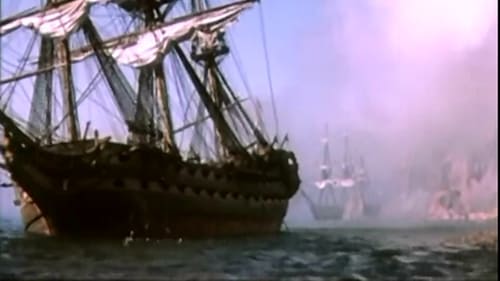
Тихон Прокофьев
The historical and biographic movie about the glorified Russian naval commander Ushakov. France begins aggressive wars. The Russian and allied troops freeing Italy are headed by A. V. Suvorov. The victory in the fortress of Corfu is ensured by operation of the admiral Ushakov.
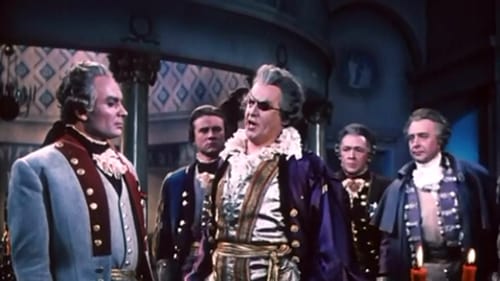
Тихон Прокофьев
Historical epic about the legendary Russian naval commander of the 18th century, admiral Fyodor Ushakov, and his fight for Crimea during the Russo-Turkish War.

Taras Shevchenko
Growing up in a Ukrainian peasant family, knowing all hardships of serf life, young artist and poet Taras Shevchenko in the years of study clearly identifies the meaning of true art, which is to serve the interests of the people. The poems of Shevchenko are imbued with love for the common people. Fiery freedom-loving creativity of Taras Shevchenko is known throughout Russia. Nicholas I exiles the poet to the distant Caspian fort where he is to serve as an ordinary soldier and is banned from writing or drawing. In the poet's difficult days he has the support of Ukrainian soldier Skobelev, Polish revolutionary Sierakowski, captain Kosarev and the commandant of the fortress, Uskov. For the sake of his release Chernyshevsky and Dobrolyubov are hard at work. And so, the sick and aged Shevchenko is finally free. Together with Chernyshevsky and Dobrolyubov, he dreams of a bright future of the motherland, when the Russian and Ukrainian peoples throw off the chains of slavery.
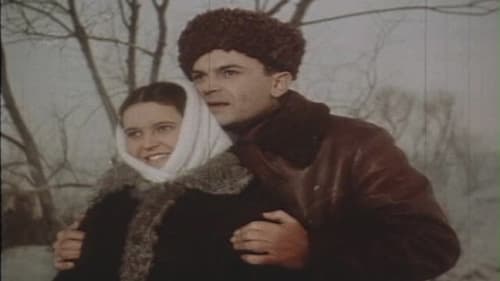
Soviet filmmaker Yuri Raisman once more combines political dogma with solid entertainment values in Dream of a Cossack (aka Cavalier of the Golden Star). The title character, played by future director Sergei Bondarchuk (and billed for obscure reasons as Semyon Bondarchuk), is an ex-soldier who returns home to the Kuban region, there to take up life as a farmer. Instead, he galvanizes the local citizenry into participating in a massive construction project, which will result in a new power station and canal. Thus does Raisman offer an prime example of Russian collectivism while making it seem as though it had sprung from individual initiative. Dream of a Cossack is based on a popular novel by S. Babayefsky.

selectionist (uncredited)
About the life of the Russian biologist Ivan Michurin. 1912 year. Having rejected American offers to work abroad, Michurin continues his research in the Russian Empire, despite the fact that his ideas are not perceived by the tsarist government, the church and idealistic science. Michurin is supported by prominent scientists of the country and he continues to work hard. After the October Revolution, a small Michurin garden in the city of Kozlov (the biologist's homeland) becomes a large state nursery.

Alexey Meresyev was a fighter pilot during the war. One day he was shot down by Nazis, and because of his wounds both of his legs had to be cut off up to his knees. Because of his spirit and courage, Alexey was able to overcome his disability. He learned not only to walk on his artificial limps, but even dance and fly the plane again. Based on a real-life story.

Comrade Valko
In 1942, local teenagers are organizing the underground resistance in the city of Krasnodon during the Nazi occupation of Russia. The teens manage to outsmart the Nazis in their fight, and their activity lifts the spirits of the surviving citizens.
